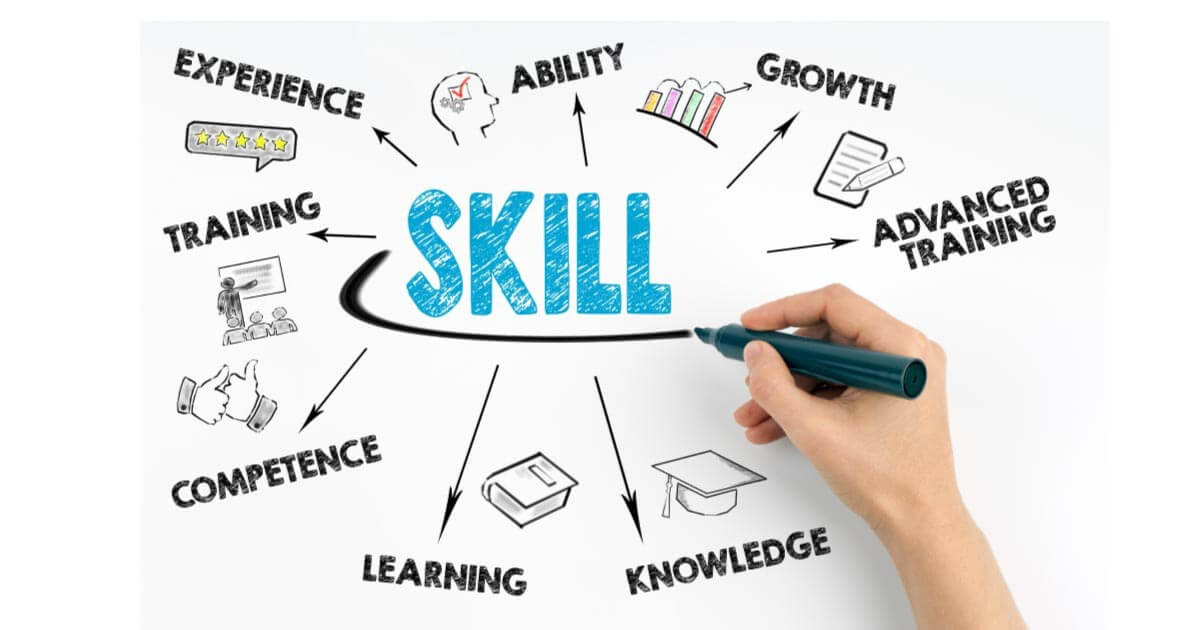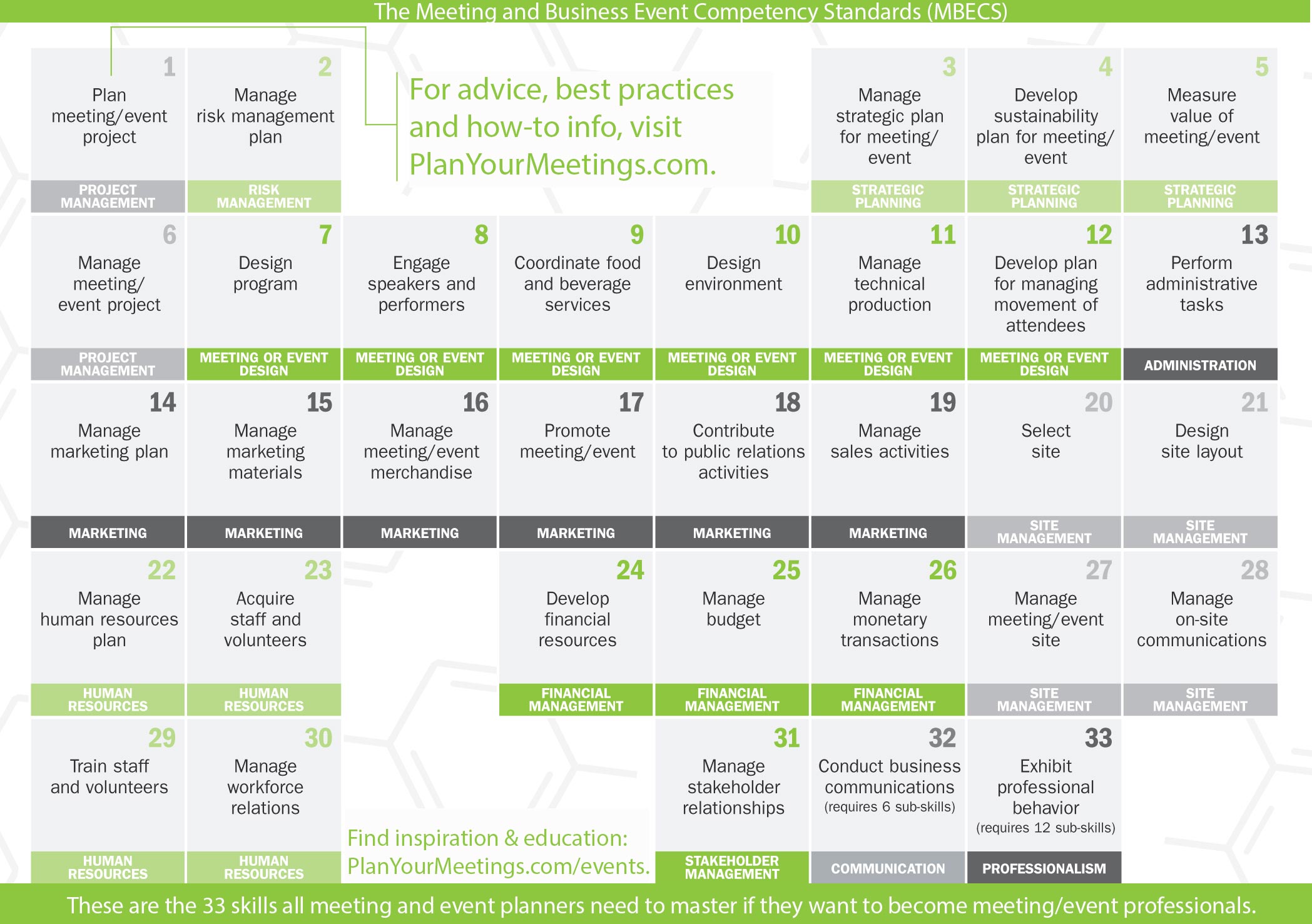BLOGS 33 Skills Needed to Become a Successful Event Planner

By Kristi Sanders
Source: MPI
If you’re like many corporate meeting planners, planning meetings and events may only be part of your job and you learn as you go, without formal training. But if planning meetings and events are a passion of yours and you want to become a meeting professional, there are 33 skills you need to master to become a pro.
The Meeting and Business Event Competency Standards (MBECS)
The MBECS were created jointly by Meeting Professionals International and the Canadian Tourism Human Resources Council. The MBECS comprise 12 categories.
Each category requires mastery of subskills that we’ve outlined below. Each one is linked to a story by a meeting professional that we think will help you understand them better and apply them to your work. So bookmark this page and come back whenever you need some guidance.
33 Meeting & Event Planning Skills
In case you need to visualize the MBECs, we’ve created a periodic chart of the elemental skills every meeting and event planner need to master.
A: Strategic Meeting & Event planning
The most important piece of the meeting and event planning process is defining the strategy. Put simply: If you don’t know why you’re having the meeting, you shouldn’t have one. By communicating with all the meeting stakeholders in advance and understanding what they’re trying to accomplish, you’re able to develop a strategic plan that’s guided by how you will achieve their goals and objectives. Knowing that will help you properly allocate budget and staff resources, make smart design and vendor choices and help you prove the return on investment later.
1. Manage the strategic plan for meeting/event
There’s a popular saying: If you fail to plan, you’re planning to fail. Nowhere is this truer than in the meeting and event industry. If you create a strong strategic framework at the beginning and identify clear goals and objectives, it’s much easier to keep track of meeting logistics and all the little details that follow.
1.01 Develop mission, goals and objectives of meeting/event
1.02 Determine feasibility of meeting or event
1.03 Determine requirements to carry out meeting or event
1.04 Develop financial summary
2. Develop the sustainability plan for meeting or event

Did you know that meetings and events generate more waste and consume more energy than any other American industry except for construction? If you’re strategic about creating a sustainability plan for your event you can have a powerful positive impact on the environment, your participants and your host communities. That’s why integrating economic, social and environmental considerations into your meeting/event design is the second skill you need to master if you want to become a meeting professional.
Being sustainable is more than just eliminating paper, reducing waste and recycling whenever possible. It also involves taking into consideration local concerns and communities, enlisting the help of your vendors to implement sustainability initiatives and measure their effectiveness, and developing a communication strategy so attendees, vendors and meeting stakeholders understand the importance of compliance and can celebrate the resulting successes.
2.01 Implement a sustainability management plan
2.02 Demonstrate environmental responsibility
2.03 Demonstrate social responsibility (CSR)
3. Measure the value of the meeting or business event
Meetings and events are one of the most effective marketing channels businesses have to fulfill business objectives. Studies have shown that face-to-face meetings are one of the top ways to close new business, build relationships, gain consensus, launch new products, train employees and handle crises. Yet, the value of meetings is often called into question by public figures and the media, often because of a lack of understanding. That’s why it’s essential that meeting and event organizers understand how to articulate how their programs benefit the company, achieve organizational objectives and generate revenue for local economies.
3.02 Measure return on investment
3.03 Evaluate/audit meeting or event


